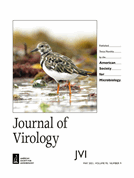AI SummaryElderly people benefit from LDL cholesterol-lowering therapy same as younger individuals.People 70 years of age and older taking LDL cholesterol-lowering therapy for primary prevention have the same reduction in major vascular events as their younger counterparts, new research confirms. Medscape Medical News
Tag: Lipid and Membrane Biochemistry
DNA segregation in mitochondria and beyond: insights from the trypanosomal tripartite attachment complex
Evaluation of Kdo-8-N3 Incorporation into Lipopolysaccharides of Various Escherichia coli strains
AI SummaryThe text describes the use of a compound called Kdo-8-N3 for metabolic labeling of lipopolysaccharide (LPS) structures on the cell membrane of Gram-negative bacteria. The authors explored the variability in LPS labeling using Kdo-8-N3 in different E. coli strains and serotypes. Different extents of labeling were observed, and the majority of labeled LPS was… Continue reading Evaluation of Kdo-8-N3 Incorporation into Lipopolysaccharides of Various Escherichia coli strains
Individual neurons mix multiple RNA edits of key synapse protein, study finds
AI SummaryA new study by neurobiologists at The Picower Institute for Learning and Memory reveals that RNA editing of a protein called complexin 7A can significantly affect how well it regulates the release of the neurotransmitter glutamate in neurons. The study found that individual neurons can have up to eight different editions of complexin 7A,… Continue reading Individual neurons mix multiple RNA edits of key synapse protein, study finds
Vaccination with prefusion-stabilized respiratory syncytial virus fusion protein elicits antibodies targeting a membrane-proximal epitope
AI SummaryWe cannot summarize the provided text as it is a list of authors and affiliations, likely from a research paper or publication. It does not contain any specific information or main points that can be summarized.Li Y, Wang X, Blau DM, Caballero MT, Feikin DR, Gill CJ, Madhi SA, Omer SB, Simões EAF, Campbell… Continue reading Vaccination with prefusion-stabilized respiratory syncytial virus fusion protein elicits antibodies targeting a membrane-proximal epitope
Synaptotagmin 1-triggered lipid signaling facilitates coupling of exo- and endocytosis
Synaptic exocytosis and endocytosis are of prime importance for brain function. How a neuronal synapse “knows” how many synaptic vesicles have fused is essentially unknown. Bolz et al. identify here a lipid-based mechanism for the coupling of exocytic vesicle fusion to synaptic vesicle endocytosis via Synaptotagmin 1.
[ASAP] Motility of Synthetic Cells from Engineered Lipids
AI SummaryUnable to summarize as no text is provided.
The major TMEM106B dementia risk allele affects TMEM106B protein levels, fibril formation, and myelin lipid homeostasis in the ageing human hippocampus
AI SummaryThe risk of dementia increases with age. Understanding the biochemical changes in the aging brain can help find ways to prevent neurodegeneration.The risk for dementia increases exponentially from the seventh decade of life. Identifying and understanding the biochemical changes that sensitize the ageing brain to neurodegeneration will provide new opport…
AHA Reviews Impact of Aggressive LDL Lowering on the Brain
AI SummaryA new statement says that there is no evidence linking aggressive cholesterol-lowering to cognitive impairment or hemorrhagic stroke.The preponderance of evidence does not support the conclusion that aggressive cholesterol-lowering is associated with cognitive impairment or hemorrhagic stroke, a new statement concludes. Medscape Medical News
[ASAP] Controlling the Chameleonic Behavior and Membrane Permeability of Cyclosporine Derivatives via Backbone and Side Chain Modifications
AI SummaryI’m sorry, but I need the specific text or prompt in order to summarize it for you.



